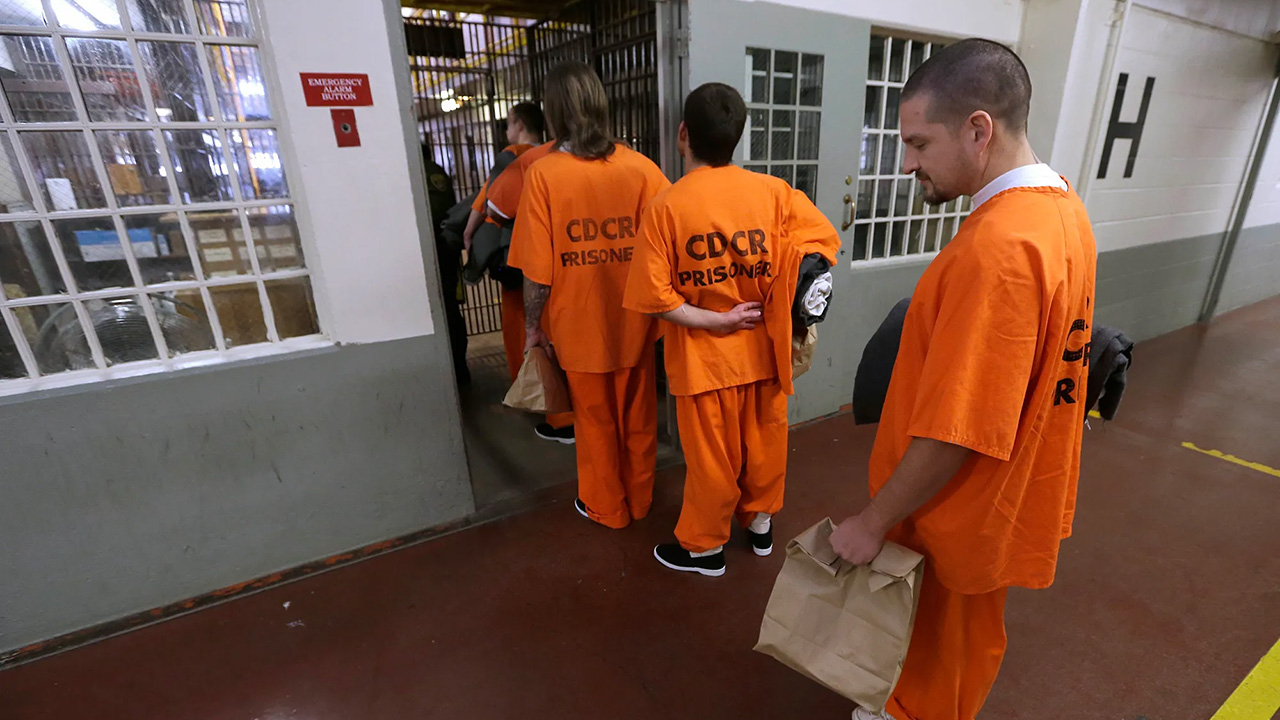A jury awarded $1.8 million and $2 million in attorneys' fees to a former California prison psychiatrist who claimed retaliation over his leave time and second job. (AP/Rich Pedroncelli)

- Anthony Coppola held a senior prison position and part-time county jail job, earning a combined $550,000 annually.
- The state investigated if Coppola misused leave to work his second job, which he argued led to retaliation.
- The jury sided with Coppola, awarding him $1.8 million plus $2 million in attorneys' fees from the state.
Share
|
Getting your Trinity Audio player ready...
|
A jury last week awarded nearly $2 million to a former California prison psychiatrist who claimed the state retaliated against him when officials began raising questions about how he earned high incomes from two government agencies.

Nigel Duara
CalMatters
A decade ago, Anthony Coppola held a senior position at a former state prison in Tracy and a part-time assignment as a psychiatrist at Alameda County’s Santa Rita Jail.
He also kept a massive bank of unused personal leave from his state job, totaling over 1,000 hours. Court records show he took two personal days a week to draw down that balance and used the time to work for Alameda County.
It added up to a combined income of about $550,000 a year, with about $300,000 from the state and about $250,000 from the county, according to public records at the website Transparent California.
The California Department of Corrections and Rehabilitation opened an internal investigation into whether he was misusing leave — “double-dipping,” as one official put it — and that contributed to a chain of events that Coppola argued drove him into early retirement.
He alleged that the corrections department singled him out when it removed hundreds of hours of leave he accrued in more than two decades as a prison psychiatrist, and that it was in retaliation for him taking medical leave after he faced questions from supervisors about his second job.
The corrections department countered that Coppola was improperly granted too many hours of leave during a period when he was working on call and that it simply corrected his balance of accrued time.
A San Joaquin County jury found for Coppola last week and awarded him $1.8 million plus another $2 million in attorneys’ fees.
“It’s really ridiculous because their theme was, we did everything we did because we gotta respect the rights of the taxpayers,” said Coppola’s attorney, Lawrence Bohm.
“And I’m thinking, you clowns could have settled this case. You should have settled this case. The moment he filed his lawsuit (in 2017), you could have settled this case for a hundred grand and put him back to work.”
The corrections department said in a statement to CalMatters that it is evaluating its options.
“CDCR is disappointed by the verdict and is evaluating what, if any, further action to take,” said corrections department spokesperson Mary Xjimenez.
Related Story: If Californians Vote to Ban Slavery This Fall, Will Prisoners Get a Raise?
Public Employees’ Personal Leave Balances
At the heart of the case was Coppola’s accrued time off. California state workers are supposed to cap their time off at 640 hours — equivalent to 16 weeks of vacation. But the state cannot force them to use the time, and some public employees accumulate more hours to cash them out upon retirement.
Allowing Coppola to keep the hundreds of hours of improperly awarded credits, the state argued, would have been a gift of state funds, and illegal.
Moreover, the state alleged that Coppola was only working two days a week at the prison, and the state alleged in its trial briefs that Coppola was frequently absent and “seldom around” during working hours.
The state further alleged that Coppola could not take medical leave because he wasn’t eligible – he hadn’t worked 1,250 hours in the year before he took leave because he was only coming in to work two days a week.
Coppola never hid his work in Alameda County from leaders at the prison known as Deuel Vocational Institution. His supervisor signed off on his outside work when he began it in 2003, according to Coppola’s trial briefs.
“The number of days Dr. Coppola worked at Santa Rita Jail varied over the years until 2013 when Dr. Coppola began using accrued but unused leave credits from (Deuel) so he could work more time at the jail,” his attorneys wrote.
Coppola, who began working in California prisons in 1996, took medical leave in October 2016, citing health issues and workplace stress.
At that point, he alleges, a “cabal” of supervisors conspired to get rid of him.
In December 2017, a corrections department attorney issued a report in which she concluded that Coppola had been improperly accruing leave credits for years and asked the corrections department’s internal affairs unit to investigate.
The internal affairs investigation did not fault Coppola with any wrongdoing, according to court filings from the corrections department.
In the meantime, a human resources investigation by the corrections department determined that Coppola improperly accrued his leave credits, and docked him hundreds of hours of leave.
He then filed a lawsuit.
Coppola retired from the state prison system in 2019. Deuel Vocational Institution closed in 2021.
Related Story: Power Restored at Overcrowded California Prison Amid Heat Wave
High Pay for California Prison Doctors
The state’s trial brief paints Coppola as a person prone to taking offense. When his supervisor moved his office to a different location, for instance, he took that as a demonstration of animosity, the state alleges.
The state described those interactions as “irrelevant and red herrings … general animosity towards Coppola is not illegal.”
Coppola’s trial brief shows that there appeared to be some animosity toward him.
“I’m going to be politically incorrect and say he needs to act like an adult,” one of his supervisors said when he took medical leave, according to Coppola’s trial brief. Another supervisor responded that Coppola “may need interventional psychiatry.”
Incorrect jail records led Coppola’s supervisors to believe for a time that he had been working at the Alameda County jail at the exact same hours he was supposed to be working at the prison.
“OMG,” responded Coppola’s direct supervisor, Dr. Carrie Anaforian, according to the trial brief, “he’s such a weasel.”
California’s prison and jail psychiatrists are among the state’s highest-paid employees and are in high demand because of a shortage of providers. The starting salary for prison psychiatrists last year was almost $286,000. Gov. Gavin Newsom signed a new contract for them a year ago that promised raises and bonuses worth at least $42,000.
Related Story: A Prison Union Is Spending Big on Gavin Newsom. Is It an ‘800 Pound ...
California’s prison psychiatrist shortage continues to cost the state in other ways. In late June, a federal judge ordered the state to pay $112 million in fines for defying years of court orders demanding that the state improve its “chronic mental health understaffing in the state prison system.”
“The shortage is absolutely having an impact both on the care and well being of the patient,” said Bohm, Coppola’s attorney. “It’s having an impact on the recordkeeping. It’s having an impact on the way administrators are enforcing things. Unfortunately, the one place it is not having an impact is treating mental health better.”
About the Author
Nigel Duara joined CalMatters in 2020 as a Los Angeles-based reporter covering poverty and inequality issues for our California Divide collaboration. Previously, he served as a national and climate correspondent on the HBO show VICE News Tonight.
About CalMatters
CalMatters is a nonprofit, nonpartisan newsroom committed to explaining California policy and politics.



















